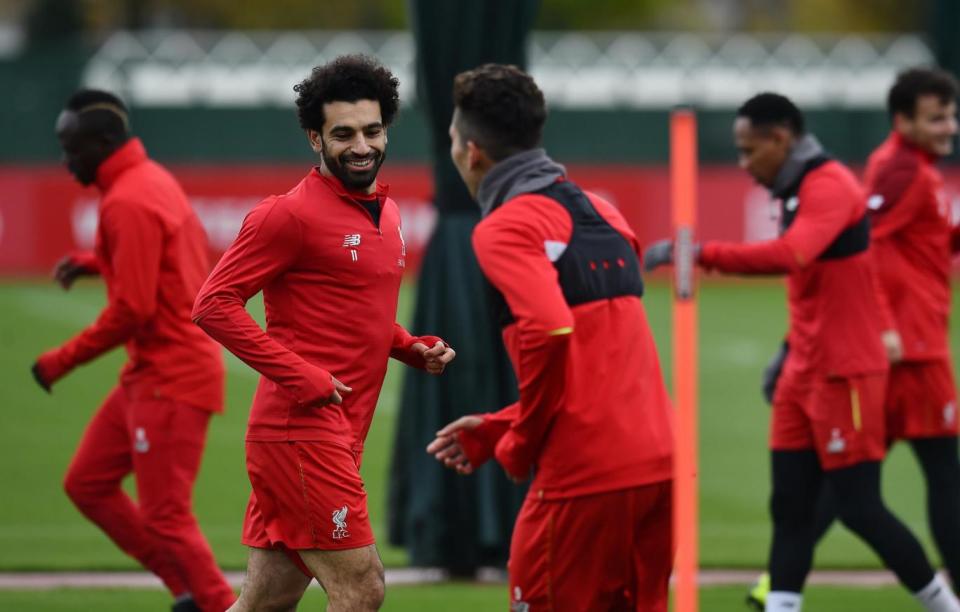Liverpool face increased injury risk as Jurgen Klopp reluctantly sends stars out on international duty

Liverpool produced the perfect response to a shock midweek Champions League defeat as they kept their Premier League title bid on track with a 2-0 win over Fulham on Sunday.
But for Jurgen Klopp, the joy of three points against the Cottagers will no doubt have been short-lived.
That is because the German’s full-time dressing-room debrief with his players was followed by a series of farewells delivered through gritted teeth.
It is, of course, time for another international break; a period Klopp recently described with more than a sprinkling of sarcasm as his “favourite part of the year”.
And, as Liverpool fans can attest, their manager’s aversion to these regular intervals is not without justification.
The last time the Reds boss was forced to release his players for national team duty, he welcomed Naby Keita, Sadio Mane and Mohamed Salah back with injuries.
The loss of Jordan Henderson to a hamstring issue just 45 minutes into the return of club football also looked to have the fingerprints of international exertions all over it.
As Reds fan and director of coaching at StrengthLab, Simon Brundish, pointed out on Twitter such blows have emerged as a common theme for Liverpool in recent years.
According to his data, 35 per cent of games missed by Liverpool players in the last four years have come as a direct consequence of injuries picked up during international breaks.

But perhaps this should come as no surprise.
Scientific literature supports the argument that a change in training habits - particularly one that disregards typical workload patterns - correlates strongly with increased chance of injury.
And there is belief among Liverpool’s medical staff that the players whose care they oversee are more susceptible to this particular risk than those at other clubs.
Klopp’s training schedule is designed to bring his squad to the edge of their physical capabilities but, as such, the individuals involved require particularly careful management.
In order to ensure that the cautious approach taken at Melwood doesn’t go to waste when players head off to join up with their national teams, strong lines of communication between the medical departments of club and country are vital.
Liverpool’s head of medical services, Dr Andrew Massey, is credited with making drastic improvements in that regard, as evidenced by England team doctor Rob Chakraverty’s recent visit to the Reds’ training base.

Sporting director Michael Edwards, meanwhile, has overseen a concerted effort to build relationships with players’ representatives to help head off any potential club-v-country rows.
But for all the good will built up between these parties and the now-constant dialogue between the respective medical teams during breaks, Klopp remains at the mercy of his international counterparts.
In branding Uefa’s Nations League “the most senseless competition in the world” last month, the 51-year-old was highlighting the difficult position national team managers now find themselves in.
Take the case of Scotland boss Alex McLeish, who, having endured a difficult start to his second stint in charge, faces two competitive fixtures in a break that previously could have been used to try and find a new formula for success.

Is the Scot likely to take into account the fact that his captain, Andy Robertson, has started 15 of Liverpool’s 17 fixtures so far this season when selecting his teams to face Albania and Israel? Probably not.
Of course, the self-interest of football managers does not just work one way.
Speaking after his Liverpool’s win over Fulham, Klopp identified one potential upside of this latest international break: the opportunity for the fit-again Keita to pick up much-needed minutes against Ivory Coast and Central African Republic.
You suspect Guinea boss Paul Put won’t be quite as thrilled that the final stages of the midfielder’s rehabilitation coincide with two crucial Africa Cup of Nations qualifiers.
But it would take a brave manager to suggest that Klopp has often benefited from the fragile entente between club and country.
And so it is likely that the Liverpool manager’s only concern between now and next week will be getting his players back in one piece.

 Yahoo News
Yahoo News 
